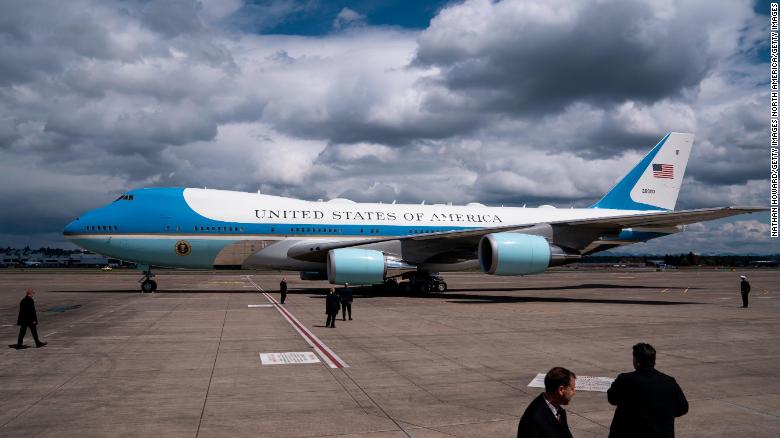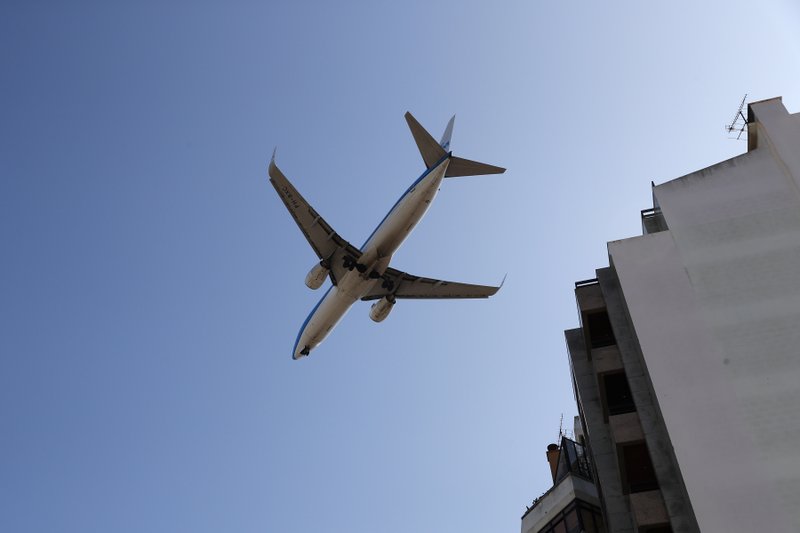
New York (CNN Business) – Boeing is moving its headquarters from Chicago to a suburb of Washington, DC. But some analysts think this move is one in the wrong direction.
Boeing was based in Seattle from its founding in 1916 to 2001. During its heyday it was renowned as an engineering-driven company that made the best, safest planes. But many industry watchers felt that reputation was lost as Boeing shifted to focus on the bottom line — and they point to its 2001 decision to move headquarters from Seattle to Chicago as a stark sign of that ill-advised shift.
The company’s Thursday announcement that it will move once again, to Arlington, Virginia, only gives critics more fuel: By moving into the shadow of both the Pentagon and Congress, Boeing seems to be signaling it has lost the commercial race to Airbus and wants to be seen as primarily a defense and space contractor.
The fact that the announcement comes the same week Airbus (EADSF) revealed it’s increasing production of commercial jets at its factory in Mobile, Alabama, only seems to drive home that point.
“One company is saying ‘We’re going to build lots of jets.’ The other is saying ‘We’re going to lobby the Pentagon and Congress for defense dollars.’ It’s a big contrast,” said Richard Aboulafia, managing director at AeroDynamic Advisory and a leading aerospace analyst.
Boeing said in a press release that the Arlington move is designed to bring the company closer to its “customers and stakeholders, and its access to world-class engineering and technical talent.”
‘The road not taken’
Aboulafia isn’t surprised Boeing decided to move its headquarters to Arlington, but he is disappointed. A move back to the Seattle area would have sent a strong signal that Boeing is was once again ready to embrace engineering, he added.
“It would have been great for morale and shown an intent to focus on their badly neglected commercial airline products,” said Aboulafia. “Imagine the power if they said ‘We’re going to back to our roots.’ It’s just disappointing. It’s the road not taken.”
Boeing’s engineering and quality problems have posed major challenges for the company. The crashes of two of 737 Max jets that killed all 346 people on board the flights led to a crippling 20-month grounding of the plane. It also was one of the most expensive corporate blunders in history, costing Boeing in excess of $20 billion. But it’s had problems, delays and financial charges for just about all of its other passenger jets too.
While the Max is now back in the air carrying passengers in most markets around the globe, that hasn’t solved perhaps its most serious problem: It’s has fallen well behind Airbus in commercial plane sales and deliveries, particularly among single-aisle jets.
Cozying up to the Pentagon and Congress could help Boeing in its defense and space businesses, but even in those fields it’s struggling to keep up with other defense contractors like Lockheed (LMT) and Raytheon (RTN), as well as upstart space companies such as SpaceX.
Plus, moving to suburban DC doesn’t get Boeing many benefits, said Ron Epstein, aerospace analyst for Bank of America. The company already has nearly 100 lobbyists and a lobbying budget of $13.4 million a year, according to the Center for Responsive Politics’ Open Secrets website, which tracks lobbying. That’s the fifth most of any individual company.
“I don’t think anyone would accuse Boeing of not having enough presence in DC,” said Epstein. “When I saw the announcement, it was a bit of a head-scratcher. You have to ask, what does that get them?”
It’s not just analysts and critics in the media who are questioning Boeing’s culture. Last week, Domhnal Slattery, the CEO of Avolon, one of the world’s leading aircraft leasing companies and a major Boeing customer, suggested the company needs a change in culture — and maybe leadership.
“I think it’s fair to say that Boeing has lost its way,” he said at the Airfinance Journal conference in Dublin on Thursday, in comments first reported by Reuters. “Boeing has a storied history…They build great airplanes. But it’s said that culture eats strategy for breakfast and that is what has happened at Boeing.”
A spokesman for Avolon confirmed the comments, although he cautioned that Slattery wasn’t speaking specifically about Boeing’s headquarters decision.
Rep. Peter DeFazio, the Oregon Democrat who chairs the House Transportation Committee, also blasted Boeing’s move.
“Moving their headquarters to Chicago and away from their roots in the Pacific Northwest was a tragic mistake that… empowered Wall Street bean-counters over the line engineers who built their once-great reputation,” he said in a statement. “Boeing’s problem isn’t a lack of access to government, but rather its ongoing production problems and the failures of management and the board that led to the fatal crashes of the 737 Max.”
“Boeing should focus on making safe airplanes — not lobbying federal regulators and Congress,” he concluded.
Some of the company’s problems — particularly the body blow it caused to airlines’ finances and demand for new planes — were beyond Boeing’s control. Even Boeing CEO Dave Calhoun admits most of the problems have been self-inflicted.
“I will be the first to admit that they were not events caused by the outside world, but unfortunately, missteps inside,” he told investors in a January conference call. Still, he insisted Boeing has taken steps to improve its attention to engineering.
“Our culture is focused on getting as close to our work as we possibly can from the very top of the company through the engineering rank,” he said. “I think we’re getting much better. In fact, we’re getting really good at it.”
Beyond the Max and the pandemic, however, Boeing has other problems to solve. Quality control issues with its widebody 787 Dreamliner has forced delivery to be on hold for nearly a year. And certification problems for its newest widebody, the 777X, has pushed back its planned first delivery of the passenger version by two years, to at least 2025.
Meanwhile, Boeing’s attempts to fix all of its problems with the Max, the 777X and Dreamliner has taken time and attention away from its original plan to come up with a new long-range single-aisle jet to compete with the hot selling Airbus A321XLR.
“Pretty much every single one of their programs has taken a [financial] charge, and that’s across both commercial and defense,” said Epstein. “It’s a hard thing to do, to design and build aircraft. Nobody’s perfect. But Boeing seems to have more warts on their programs than all of their peers. It all goes back to engineering. Is moving to Arlington changing the engineering culture in a good way? It’s hard to see.”




